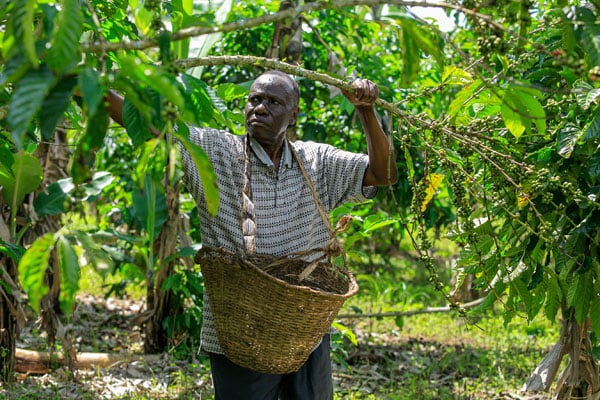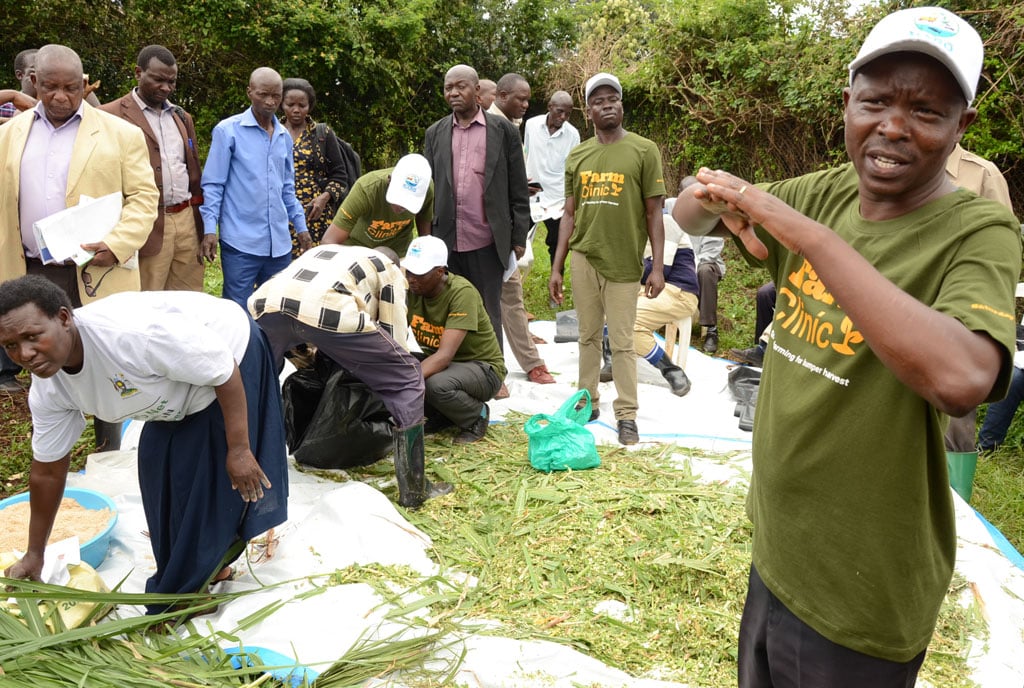Prime
If connectivity and cost of smart devices are worked on, Fintechs have potential to turn around farming

Because many farmers are based in rural areas, they find difficulty in using mobile phone applications due to lack of smart devices and poor internet connectivity. Photo / Courtesy
What you need to know:
- Whereas many sectors have shifted to the digital economy, the shift for farming has been slow due to the fact that majority of its ender users are based in rural areas where smart devices penetration and internet connectivity is still low
The past one decade has seen Uganda’s digital migration journey take a huge leap forward.
Right from the shift from analogue to digital television to banking school fees or buying groceries using mobile phones, we have seen almost every service go digital.
Arguably the most important of this revolution is the provision of digital financial services to people in the agricultural sector - call it Agritech.
Imagine a potato farmer in Kabale or coffee farmer in Mbale having the ability to know the price of their produce in New York or London by just using a mobile application.
This and more has been made possible by multiple digital solutions by indigenous Financial Technology (Fintechs) companies whereby farmers can now trade online, search and pay for farm inputs or can even acquire digital loans.
While this trend is commendable, the market has been slow in terms of adoption by end-users, especially in remote areas due to infrastructural challenges such as poor internet connectivity and slow penetration of smart devices.
For instance, one Fintech company called Akello Banker is providing digital assistance to smallholder farmers and SMEs in different parts of Uganda to access important services such as access to inputs, extension services, and tractor hire services on credit.
However, the low penetration of smart phones and largely poor internet infrastructure remain a challenge.
“Financial inclusion thrives on infrastructure,” Jean Anthony Onyait, the founder of Akello Banker, says, and tells the organisers of the 40 Days 40 Fintechs initiative, that: “Here, we are talking about internet access, and mobile devices, especially for women and the youth [who are] the biggest users of our platform.”
The 40 Days 40 Fintechs initiative is an annual programme organised by HiPipo, to showcase unique stories by East African Fintechs.
It is organised in partnership with the Level One Project, Mojaloop Foundation, INFITX, Cyberplc Academy, and Crosslake Technologies with support from the Bill and Melinda Gates Foundation.
It seeks to provide digital financial services to people at the bottom of the pyramid and was designed to encourage the development of a sustainable financial ecosystem that is geared towards meeting the needs of low-income users.
Since the inaugural 40 Days 40 Fintechs season in 2020, more than 100 Fintechs have been profiled.
In the case of Akello Banker, Onyait says the best they can do is to provide devices yet resources remain a challenge.
“We are devising means of how we can – we have actually provided mobile devices to [some] users on credit in order to help in the adoption and for us to drive the digital in itself,” he says.
This, however, does not solve the internet connectivity issue.
“We get issues while transacting from mobile money and depositing money to the App on savings accounts or withdrawing money. Sometimes, the network is off. You are forced to deposit money and follow it up with calls to ensure it has reached your account,” a user says.

Innovators of mobile based applications such as AgriShare have experienced challenges related to low smart devices penetration and poor internet connectivity. Photo / Courtesy
Similarly, AgriShare is another Fintech that runs an application, which connects people with unused land with people who are interested in hiring it for farming.
However, most of the land owners reside in rural areas and either have no smart phones or lack internet connectivity to make use of this product.
“Yes, some farmers don’t have smartphones and we have taken steps to ensure that they can make payments through the merchants or Airtel and MTN,” Paul Zaake, the managing director and co-founder of AgriShare, says.
However, Innocent Kawooya, a digital financial services specialist and chief executive officer of HiPipo, says the challenge posed by connectivity and devices as highlighted by Fitech end-users should be taken as a sign of willingess by the underserved to join the digital financial space.
“One of the driving principles of the 40 Days 40 Fintechs initiative is ‘including everyone’. So, we take keen interest in these bottlenecks that are preventing people from utilising these innovations,” he says.
The good thing, however, he adds, is the fact that people like the initiatives but only lack the support factors, noting that this is where the service providers come in, supported by government and telecom companies by investing in infrastructure to enable connectivity.
“Secondly, Fintechs, especially those with a targeted audience can work with other device service providers to incoporate a buy-now pay-later programme for their end users. This will in the end create a strong relationship with their clients,” he says, and notes that some Fintechs have already identified these challenges and started implementing solutions such as offline services.
On the part of the 40 Days 40 Fintechs programme, Kawooya says they work with local and international partners to support the nascent Fintech sector by providing access to technical and business skills.
“For example, we coordinate Mojaloop training that shows DFSPs how to build interoperable digital payment systems that seamlessly connect stakeholders, such as individual users, banks, government entities, merchants, mobile network operators, providers, and technology companies,” he notes.




